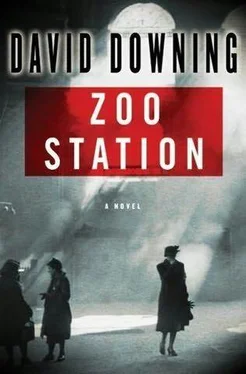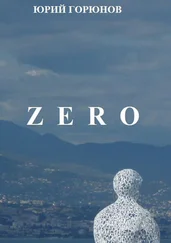David Downing - Zero Station
Здесь есть возможность читать онлайн «David Downing - Zero Station» весь текст электронной книги совершенно бесплатно (целиком полную версию без сокращений). В некоторых случаях можно слушать аудио, скачать через торрент в формате fb2 и присутствует краткое содержание. Жанр: Шпионский детектив, на английском языке. Описание произведения, (предисловие) а так же отзывы посетителей доступны на портале библиотеки ЛибКат.
- Название:Zero Station
- Автор:
- Жанр:
- Год:неизвестен
- ISBN:нет данных
- Рейтинг книги:5 / 5. Голосов: 1
-
Избранное:Добавить в избранное
- Отзывы:
-
Ваша оценка:
- 100
- 1
- 2
- 3
- 4
- 5
Zero Station: краткое содержание, описание и аннотация
Предлагаем к чтению аннотацию, описание, краткое содержание или предисловие (зависит от того, что написал сам автор книги «Zero Station»). Если вы не нашли необходимую информацию о книге — напишите в комментариях, мы постараемся отыскать её.
Zero Station — читать онлайн бесплатно полную книгу (весь текст) целиком
Ниже представлен текст книги, разбитый по страницам. Система сохранения места последней прочитанной страницы, позволяет с удобством читать онлайн бесплатно книгу «Zero Station», без необходимости каждый раз заново искать на чём Вы остановились. Поставьте закладку, и сможете в любой момент перейти на страницу, на которой закончили чтение.
Интервал:
Закладка:
He could write something perceptive about Nazi Germany if he had the mind to, Russell thought. Unfortunately…
He could write these articles in his sleep. Or almost. The Soviets liked lots of statistics-something they shared with the Nazis-and that would involve a little work. But not much. Shchepkin’s oral reports on the other hand…
He’d been trying not to think about them. Kleist’s question about other contacts had also been intended as a warning-he was sure of that. And the Soviets expected him to meet one of their agents outside Germany once a month. Which would no doubt make things safer for the agent, but how was he supposed to explain this new and oddly regular penchant for foreign travel? Could he refuse this part of the Soviet job? He suspected not. He wasn’t sure how the Soviets would make any hard feelings felt, but he was sure they’d manage it somehow.
Nor did he feel that happy about wandering round Germany asking questions, even if Kleist did come up with some sort of protective letter. He supposed he could invent any number of imaginary responses-how, after all, could the Soviets check up on him? Then again, who knew what was left of the communist network in Germany? And in any case, part of him liked the idea of finding out what ordinary Germans were feeling in Year Six of Hitler’s thousand.
That was it, he thought. “Ordinary Germans.” The British and American tabloids liked series: The Daily Mail was currently doing one on “European Troublespots”-he’d read No. 4 (“Memel-Europe’s Nagging Tooth”) the previous week. He could do something similar about ordinary Germans. The Worker. The Housewife. The Sailor, the Doctor, the Schoolboy. Whatever, as Slaney would say. Interviewing them would provide the ideal cover for gathering the information Shchepkin wanted.
And the trips abroad? It was obvious-“Germany’s Neighbours.” Another series, this one looking at how people in the neighboring countries viewed Germany. He could travel all he wanted, talk to all the foreigners he wanted, without arousing suspicion. In Poland, Denmark, Holland, France, and what was left of Czechoslovakia. He could take Effi to Paris, visit his cousin Rainer in Budapest. He leaned back in his chair feeling pleased with himself. These two series would make him safer and richer. Things were looking up.
The feeling of well-being lasted until the next day. After posting off his text and photos of the Chancellery opening he traveled across town to the University, where Julius Streicher was inaugurating the new chair. It wasn’t, as Normanton had mischievously claimed, actually called the Chair of Anti-Jewish Propaganda, but it might have been. There was no sign of Streicher’s famous bullwhip, but his veins bulged just the way Russell remembered. The Nazi angrily denied the claim that National Socialism had put fetters on science or research. Restrictions, he insisted, had only been placed on the unruly. In fact, decency and sincerity had only obtained their freedom under National Socialism.
He had been ranting for an hour and a half when Russell left, and looked set for many hours more. Coming away, Russell knew what Normanton had meant about Mad Hatter material but, for once in his life, he felt more emotionally in tune with McKinley’s simple disgust. Perhaps it was the fact that his next port of call was the Wiesners.
He picked up a Daily Mail while changing trams in Alexanderplatz and went through it with the two girls. They pored over the fashion pictures and ads, puzzled over the headline MAN WHO SLAPPED WOMAN MAYOR SAYS ‘I’M ASTOUNDED,’ and objected to the one which claimed ALL WOMEN ARE MAGPIES. A photograph of the King of Egypt out duck-shooting reduced Ruth to such a fit of giggles that her mother came out to see what was happening.
After the lesson she brought out the best coffee and cake Russell had tasted for months, and thanked him profusely for all he was doing. Her husband was well, she said, but her face clouded over when he asked about Albert. He was “finding things difficult.” He had the feeling she thought about saying more but decided against it.
He’d planned a few more hours of work before picking up Effi from the theater, but after Streicher and the Wiesners he felt more like punching someone. He found another Western on the Ku’damm and sank into a world of huge skies, lofty canyons, and simple justice. Chewing gum for the heart.
Effi was tired and seemed as subdued as he felt. They walked slowly back to her flat, went to bed, and lay quietly in each other’s arms until she fell asleep. Her face grew younger in sleep, and she looked even more like Ruth Wiesner.
Wednesday evening, Russell was listening to dance band music on the BBC when McKinley knocked on his door and suggested a drink. While he collected his shoes from the bedroom the young American scanned his bookshelves. “Half of these are banned,” he said admiringly when Russell returned.
“I haven’t got round to burning them yet,” he replied, reaching for his coat.
Outside it was warmer than it had been, but there were specks of rain in the air. As they turned the corner onto Lindenstrasse McKinley took a sudden look over his shoulder, as if he’d heard something.
“What?” Russell asked, seeing nothing.
McKinley shook his head. “Nothing,” he said.
They walked under the elevated U-bahn tracks at Hallesches Tor, and across Blьcherplatz to the bar they used for their infrequent drinks together. It was almost empty. The barman yawned on his stool; two old men in the corner stared morosely at each other. McKinley bought them beers-dark for Russell, light for himself-while Russell commandeered the only bowl with any nuts and carried it across to the table with the fewest standing pools. As he lowered himself into the seat it groaned alarmingly but held together. “We have to find a new bar,” he murmured.
McKinley tried his beer and smiled in satisfaction. “Okay,” he said. “Now tell me about Schacht.”
“He’s dead in the water.”
“Okay, but why? I never understood economics.”
“Schacht does. That’s why.”
“What do you mean?”
Russell thought about it. “Schacht wants to see the economy run according to the laws of economics. He did when he was Finance Minister, and as long as he’s in charge of the Reichsbank he’ll keep beating the same drum. The trade deficit is soaring, the Reichsbank’s holdings of foreign exchange are dwindling, and there’s a real possibility of another runaway inflation. The economy’s running out of control. Schacht would like to raise taxes and switch production from armaments to something that can be sold abroad. Some hope, eh? If Hitler and Goering have to choose between their armament program and the laws of economics, which do you think they’ll choose?”
“But if the economy is in real trouble?”
“Nothing a war won’t fix.”
“Ah.”
“Ah, indeed. Schacht, shall we say, has the narrow view. He’s assuming several years of peace, at the very least. Hitler, on the other hand, sees a choice. He can either do what Schacht wants-rein in the war machine, raise taxes, and get the real economy moving again-or he can go for broke, and use the army to put things right. He sees all that wealth beyond his borders, just begging to be collected. That’s why Schacht has to go. Hitler’s not going to risk higher taxes in Germany when he can steal the same money from conquered foreigners.”
McKinley looked at him. “I never know how serious you are. If this is such a big story-Schacht going, I mean-then why isn’t it on the front pages back home? If war’s so absolutely certain, how come you’re the only one who knows it?”
Russell smiled. “Just gifted, I guess. Another beer?”
When he got back from the bar, McKinley was making notes in his little black book. “Was your dance night a one-off, or are you going out with that girl from the embassy?” Russell asked him.
Читать дальшеИнтервал:
Закладка:
Похожие книги на «Zero Station»
Представляем Вашему вниманию похожие книги на «Zero Station» списком для выбора. Мы отобрали схожую по названию и смыслу литературу в надежде предоставить читателям больше вариантов отыскать новые, интересные, ещё непрочитанные произведения.
Обсуждение, отзывы о книге «Zero Station» и просто собственные мнения читателей. Оставьте ваши комментарии, напишите, что Вы думаете о произведении, его смысле или главных героях. Укажите что конкретно понравилось, а что нет, и почему Вы так считаете.












